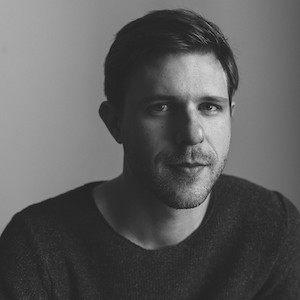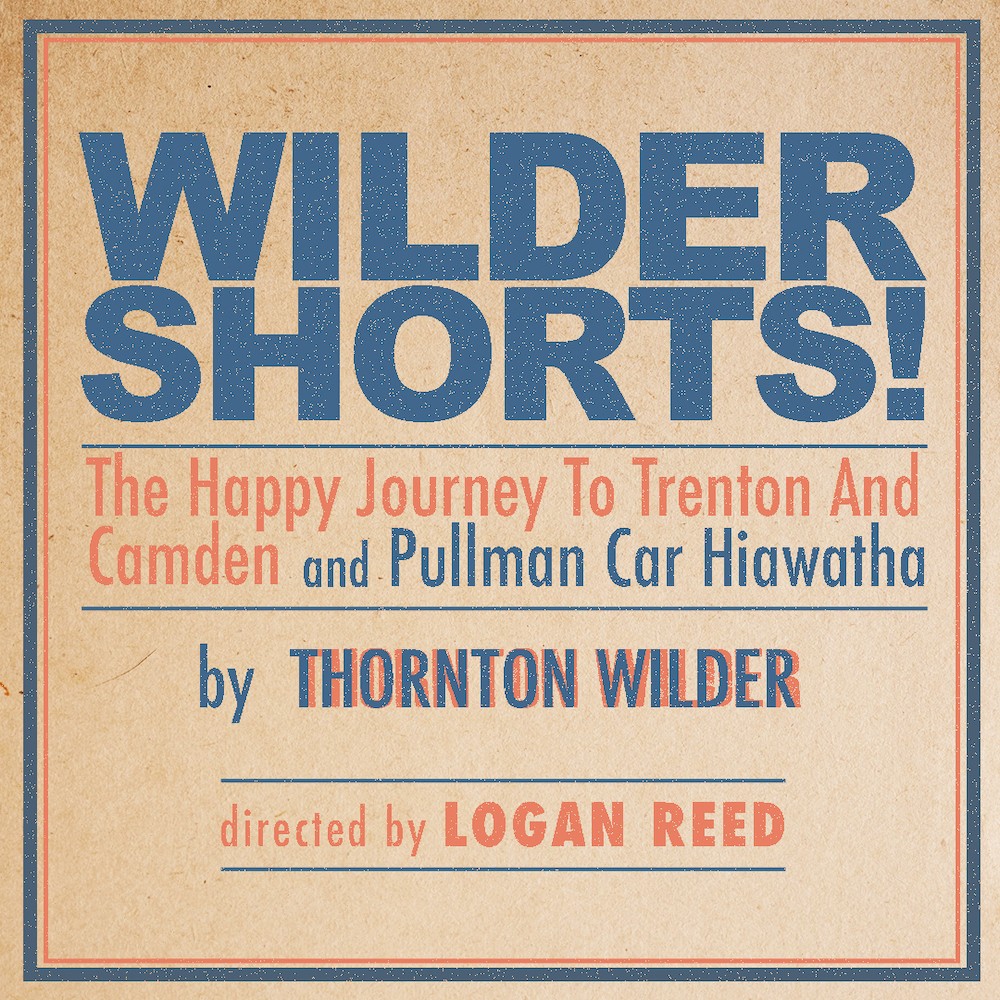Directing Thesis Interview: Wilder Shorts!
For his thesis production, student Logan Reed directs two short plays by Thornton Wilder.
In The Happy Journey to Trenton and Camden and Pullman Car Hiawatha, the Kirby family travels to Camden and a motley crew of passengers on a train hurtle through the American landscape to Chicago. The solar system makes an entrance, the great philosophers of years past impart their “wisdom,” and the fields themselves fight for the spotlight. In a celebration of theatre itself, nine actors perform over 30 roles in these two Thornton Wilder short plays, capturing the hilarity and miracle of life along with its inevitable fragility.

Why did you decide to do this particular production for your thesis project?
First and foremost, the two short pieces felt of the present despite being from the past. COVID-19 reconfigured the way I think about the world and my own part in it, and these pieces get to the core of what’s been on my mind. Finally, they’re like life in that they’re wildly funny and absurd while mining topics that are difficult and immediate. I figured we should laugh while discussing serious matters.
What do you hope the audience will get out of the performance?
Wilder offers up many questions and very few answers, but I hope the audience will leave thinking about their own place in the universe. What matters to them? What’s actually important? We’re a blip and we’re here in this world for far shorter than we’d like to admit, but the plays acknowledge this reality with humor, heartache, surrealness, and joy. The audience may or may not experience any number of those emotions.
What was the most exciting part about this project?
Being in a room together with other artists trying to make something. Very, very few theater artists have been able to experience their craft in the past 18 months, and we were lucky in that we were some of the first theater-makers back at it. It was beyond moving to be telling stories in this medium once again.
What was the biggest challenge?
The greatest joy was also the greatest challenge. Making a piece of theater in the time of COVID-19 is no easy feat. Every touch, every song, every movement on stage is much more intentional because of the reality of being in a global pandemic. The logistics of making the piece was real, but there was also an emotional challenge of being in a room again with a large group of people. We were all delightfully awkward and weird throughout most of the process.
What has been a crucial lesson from your training?
The shape and form of the process determines what the audience witnesses. This was an especially fruitful and experimental and delightful rehearsal room. What you see onstage is the next step in a process that is a truly collaborative effort. It took many ideas from all of the actors, the designers, our dramaturg, our stage management team, and our producer to reach this stage.
Tell us something that you found surprising about the process of putting up this production?=
Everything about making a piece of theater by Thornton Wilder is mysterious and confounding and surprising. When I decided to tackle these pieces I thought I understood their mechanics relatively well, but the breadth of Wilder’s intelligence and humanity kept surprising me. There are so many layers to these pieces and his mind is working on many levels. He was inventing new storytelling techniques in these plays. I was humbled by his work. This is not the Wilder we know from Our Town. I’ll leave it at that.
What is your philosophy for directing?
Not to have a philosophy for directing.
Where do you see yourself in five years?
Doing work that pushes forward our collective struggle of figuring out who we are to one another, whether that’s in the theater or elsewhere. How are we going to go about understanding each other’s stories and histories in order to solve some truly existential challenges? How do we repent? How do we build trust? How do we incite action? How do we forgive? How do we love? The theater has a role in all of these questions.
Logan Reed is a New York based Theatre Director with select credits including Terrence McNally’s Some Men (Pride Plays at Rattlestick) & It’s Only a Play (Hawaii Theatre), Twelfth Night (Classical Theatre of Harlem), Jeremy O. Harris’s Xander Xyst, Dragon: 1 (Sam French OOB Festival), Sarah DeLappe’s But I Digress (The Habitat) and Mom Play (TinyRhino), Naomi Wallace’s War Boys (Columbia University), Kate Pressman’s 26 Seconds (Open Studio at Park Avenue Armory), Gabriel Vega Weissman’s and Brian Reno’s Loose Canon (Scranton Shakespeare Festival / FringeNYC / SoHo Playhouse), Stephen Charles Smith’s Slow Field (Theaterlab), and Helen Banner’s The Sixth Borough (Fresh Ground Pepper). He recently served as the 2020-2021 Perelman Center Fellow under the guidance of Bill Rauch and also held a Public Diplomacy Internship at the State Department, where he focused on countering disinformation. He’s a recent alumni of Columbia’s School of International & Public Affairs International Fellows Program. B.A. Tufts University.
Stream September 30–October 3, 2021
Presented by arrangement with Concord Theatricals on behalf of Samuel French, Inc.
